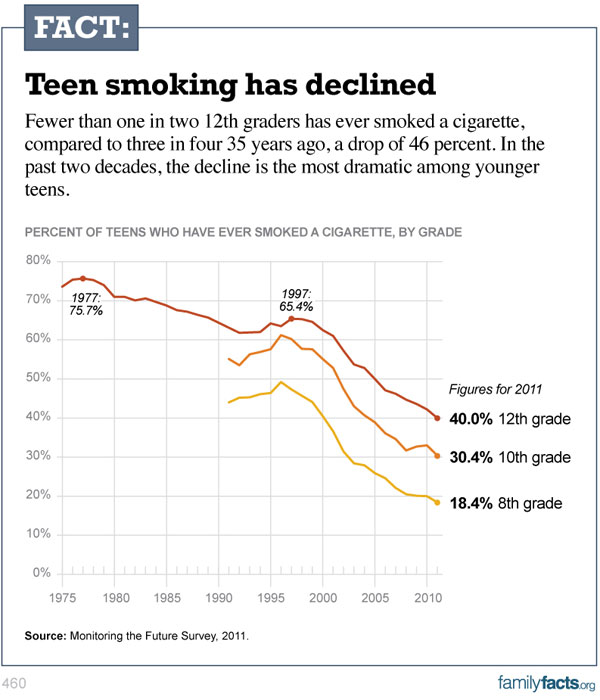After all manner of campaigns against smoking, it turns out that civil society has some sway in the matter. A recent Gallup poll found that regular church attendees are three times less likely to pick up a cigarette.
While the group that has the highest concentration of smokers—young, single men—is also the least likely to attend services, Gallup controlled for these factors and found that church attendance was still significantly related to whether an individual smoked.
The influence that church attendance can have on health highlights how the impact of religion can extend far beyond weekend services. Religious practice is generally not limited to an hour a week. For many, religious faith influences a core set of beliefs about the world that guides their day-to-day actions.
In the U.S., religious freedom has been increasingly watered down to a mean the mere freedom to worship, where faith should be expressed only on weekends, within the walls of churches, synagogues, and mosques. But religious freedom can’t stop at the doors of people’s homes or places of worship.
The Gallup poll found that Mormons were least likely to smoke, with only 8 percent of respondents admitting to lighting up. Jewish respondents were a close second, with only 10 percent identifying as smokers. Catholics had a 18 percent likelihood, and Protestants had a 20 percent likelihood, of being smokers. Meanwhile, “nones”—those unaffiliated with a specific religion—had the highest percentage with a 26 percent likelihood of being smokers.
But this shouldn’t surprise anyone. Regular church attendees—particularly teens—are far less likely to engage in a number of unhealthy activities, including using drugs, abusing alcohol, or having multiple sexual partners.
Religious practice plays an important role in maintaining civil society, encouraging intact families, and even promoting individuals’ health. Yet, an increasing disregard for the benefits of faith-driven actions is threatening to confine Americans’ faith behind closed doors. Policymakers and national leaders should recognize the profoundly important role that religious belief—and practice—plays in sustaining families, increasing personal well-being, and promoting a robust civil society.
Source material can be found at this site.











